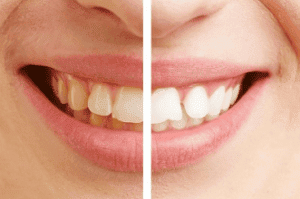Yearning for that white and pearly smile is only the beginning. For there are a lot of obstacles in our way to achieve that, one of them is tartar.
You see, one of the ways our smile can be tainted and made less appealing is through tartar. So if you want to know more about it, like how it forms, how to remove it and more, then you are in the right place!
What tartar is and where it comes from
As you know, we are in a constant battle with plaque where we seek to remove it by daily brushing. It is through good oral habits such as brushing, flossing and rinsing our mouth that we get to keep it at bay. Anything less would make the growth of bacteria and tooth decay come closer to our pearly whites.
So when plaque sits around our teeth for too long, it starts to harden and becomes what we know as tartar. Tartar, also called calculus, is essentially plaque that has stuck and has calcified on our teeth, usually around the gum line.
Why we must be wary of it
Now that we know what it is, it is now time to explain what it does to us. We have asked Los Algodones dentists just how they affect our teeth, and this is what they have emphasized.
First, that unlike plaque that is transparent and hard to see, tartar becomes yellow and brownish. This poses a great issue as many of us seek a white and beautiful smile. So if you haven’t considered to think of plaque as an enemy, now is the chance to change your mind!
Besides the aesthetic issues, it is known to affect our gums. The plaque that has hardened irritates and makes our gum lines swell, opening the way to gingivitis. Failing to treat this issue will only make it worse, as it can turn into periodontitis.
Moreover, as tartar hardens, it gives plaque even more space for it to stick to. So more neglected habits turn into more tartar building up. And in the case you want to go back and start brushing every day, then you will be unable to as the toothbrush‘s bristles won’t make it past the tartar.
So how do we prevent tartar buildup?
As it was previously mentioned, there are some good oral habits we must follow everyday in order to keep our teeth free of plaque. These habits are brushing, flossing and mouth rinsing.
Brushing
Brushing is the most important one of them all, but that does not mean you must forget about the others. Los Algodones dentists recommend brushing twice a day: before going to sleep and upon waking up. The reason behind this is to not let the bacteria attack our teeth when we are at our most vulnerable.
Furthermore, when we are brushing our teeth, it must be for at least 2 minutes each session. This will give the toothpaste enough time to have lasting effects on our teeth.
Flossing
This is one of the most neglected ones out of these oral habits. We know that handling a piece of string around might sound bothersome or silly, but we promise you that habits makes perfect.
Flossing is very helpful as it gets to places where the toothbrush cannot reach or finds very difficult to. Getting a good flossing technique going on lowers your chances of getting gum disease.
Mouth rinsing
This can be done with water at times, but it is even better if you use a mouthwash. You will find both therapeutic and cosmetic mouthwashes sold at pharmacies.
Cosmetic masks smells and keeps your mouth fresh for a period of time. Therapeutic mouthwashes tackle problems and improve your oral health. Among them there is a tartar control mouthwash you might find useful.
